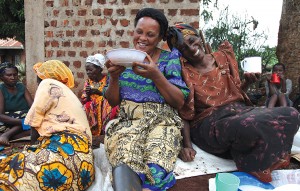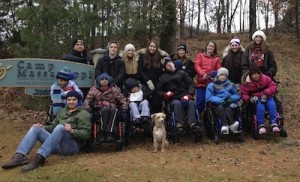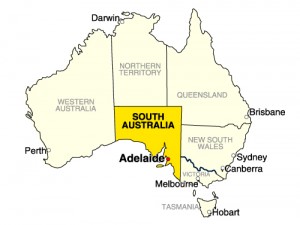 Grandmothers are very special. Whether it’s their capacity to laugh, support grandchildren, or see them a little more objectively than their parents, grandmas are essentially our students’ very own personal fan clubs. I have seen that special look of joy and pride in grandma’s eyes, at school science fairs, plays, the athletic sidelines and closing ceremonies. Grandma’s presence and her smile can make all the difference for a student.
Grandmothers are very special. Whether it’s their capacity to laugh, support grandchildren, or see them a little more objectively than their parents, grandmas are essentially our students’ very own personal fan clubs. I have seen that special look of joy and pride in grandma’s eyes, at school science fairs, plays, the athletic sidelines and closing ceremonies. Grandma’s presence and her smile can make all the difference for a student.
Why the focus on grandmothers? It turns out that after more than 30 years of fighting the global HIV–AIDS pandemic, grandmothers have become some of the real heroes.
For a quarter century the international community’s attention has been focused each December 1st on World AIDS Day. We commemorate the millions of lives affected by the international AIDS pandemic. More than 25 million lives have been lost, most of them in Africa. Today the vast majority of the 34 million people living with AIDS are also in sub-Saharan Africa.
Despite this reality, there has been some notable progress in fighting the pandemic. In the past decade there has been a near 30% reduction in new HIV infections, and during the same period, global AIDS deaths have also fallen by 30%. At less than $1/day, anti-retroviral medications are now affordable and effective.
But some alarming trends persist. The only age group with a rise in AIDS infections is the youth cohort, the same age as our LCC students: 10-19 years old. Since 2005 there has actually been a 50% rise in youth AIDS-related deaths, usually due to ignorance, denial or cultural stigma. Sixty-three (63%) of the infections are young women who know little or nothing about preventing the disease or its treatment.
For years LCC students have financially supported the Stephen Lewis Foundation, which has done so much to raise awareness, raise funds, and help turn the tide on AIDS, especially in Africa.
In his years of work to stem the tide of AIDS, Lewis has visited many African communities profoundly affected by the disease. In most cases, he noted that the pieces were being picked up by grandmothers; old women who continue today to care for their orphaned grandchildren. Lewis sees African grandmothers as the key agents of change on the frontlines of HIV in Africa. A recent special report calls these old women the “guardians of sub-Saharan Africa.”
So earlier this fall, the Stephen Lewis Foundation brought six African grandmothers to Canada to tour several communities and explain the reality of their lives and the impact of AIDS on orphaned children.
The grandmothers need more support. Specifically, they require better housing, access to health care, food security and access to education in their local communities.
In Canada, 240 grandmother groups have been very busy helping out. Through a host of innovative activities they have raised $17 million for African grandmas. Along with the Stephen Lewis Foundation, they are sounding a clarion call-to-action to the world. They are telling us it is time to break the silence regarding neglect and negligence of grandmas. We should all recognize that these selfless women have been the key to survival of whole communities.
If there is a grandma in your family, ask what she thinks. It should be a unique conversation. —Christopher Shannon, Headmaster



![photo[5]](https://wearelcc.ca/wp-content/uploads/2013/11/photo5-300x200.jpg)